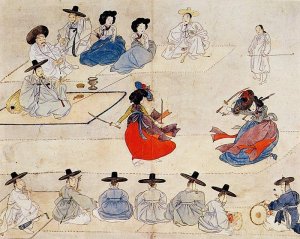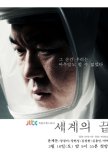
All this makes for gripping viewing, in a train-wreck sort of way, but the unrelenting darkness made it hard for me to really engage with the characters or their world. Some of this may have been due to the unexpected cut in the show’s length, as plot was prioritized over character development, but much of it stemmed from its deep pessimism about human nature. Certainly there are plenty of examples of people behaving badly in times of crisis, but I’d like a drama to leave me with more than “most humans suck” as a final message. Because, really, do you want your audience rooting for the virus?
Was this review helpful to you?
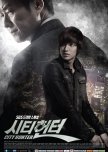
The sheer incompetence on the micro level is particularly frustrating because on the macro level the show is dealing with genuinely relevant and intriguing problems, ranging from age-old questions of justice vs. vengeance and vigilantism vs. the rule of law to more modern issues of affordable health care and access to education. It’s a show that could have worked, and worked really well. The narrative architecture is there, but perhaps they should have brought in a novice writer to do the decorating.
Was this review helpful to you?
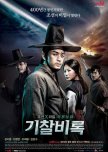
There were intriguing moments, especially in the episodes involving geomancy and other time- and place-specific mystical traditions, but as soon as the cheesy glowing space balls started flying around I began reaching for the remote. At forty-five minutes long, the stand-alone episodes felt too short to allow for much emotional engagement and the monster-of-the week plots weren’t especially original. The overall mythology was potentially intriguing, but the writers, perhaps angling for a second season, seemed hesitant to actually “reveal” anything, settling for atmospheric vagueness instead of genuine narrative payoffs. There was lots of artsy hand-held camera work and an effusive fog machine, but I never felt there was much substance behind all the smoke and shakiness. The truth may be out there, but you’ll have a hard time finding it in the oblique writing and the dimly lit, bouncing frames.
Was this review helpful to you?

Drama Special Series Season 1: White Christmas
9 people found this review helpful
While I found the characters compelling, the narrative structure was bumpy at times. The first several episodes felt taut, chilling and inevitable, but things got rougher in the second half, with builds that didn’t quite pan out and plot holes large enough to drive a killer truck through. Also, for all the inherent darkness of the premise, the writer seemed hesitant to poke around in its more controversial corners. There was a lot of odd sexual innuendo that never really went anywhere (unless we’re supposed to read popping champagne corks as metaphors for other types of explosions), and while I’m glad the show didn’t go the slasher film route, really raising the physical stakes instead of simply pretending to would have heightened the psychological stakes as well. Some of this may have been producer-imposed censorship given the age of most of the characters, but it felt a bit safe in the context of the story. Finally, the philosophical questions about the “making” of monsters seemed rather academic when exploring what one does when actually confronting a monster. Choosing to do evil in a vacuum is a very different thing from making morally problematic choices when someone is actively trying to destroy you.
Despite these issues though, the show remains a beautifully filmed, haunting piece that’s at its best when it’s exploring the hidden strengths and horrors of the adolescent mind. Its young cast brings varied skill levels to the table, but their schemes, betrayals, alliances and desires are fascinating to watch.
Was this review helpful to you?

Intentionally structured like a storybook (complete with an initially over-intrusive narrator), the show jettisons many of k-drama’s structural clichés as it follows the growth of its protagonist from innocent young man to wiser hero. Jung Il Woo gives a lovely (in more ways than one) restrained performance full of moments of quiet sweetness and pathos. Jung Hye Young, as his mother, is also exceptional, radiating warmth and longing. There are plenty of fight scenes and large helpings of occasionally distracting slapstick comedy, but the show never loses its contemplative feel. The characters find fleeting moments of connection in sex, friendship, compassion, and sacrifice but the world’s injustices are always there, calling them away from comfort. The show suggests that heroism is not a natural gift, but something learned and struggled for and easily lost if the passion for justice tips over into hatred. There are occasional missteps, including a bizarre first episode, but once the show finds its rhythm, it becomes a hero’s journey very much worth the taking.
Was this review helpful to you?

The plot lines may hardly be original, but the complexity of the main characters gives the old stories a freshness and power they would otherwise lack. Song Il Guk does a fine job as the young prince destined to found an empire, but my favorite actors (and characters) were Hu Joon Ho as the grizzled veteran Haemosu and Jun Kwang Ryul as the tormented king Kumwa. Hu exudes presence every moment he’s onscreen, and Jun’s portrayal of the king’s increasingly conflicted and destructive loyalties is devastating. The show also uses its length to draw us so completely into its web of relationships that many of its most powerful scenes are not the giant battles but the quiet moments where a truth is revealed or a lie is told or a heart is broken.
Does everything work? No. The plot meanders in the final third, with wild goose chases down narrative lines that seem designed to kill time rather than actually deliver meaningful revelations. I could have lived without the saccharine pop ballad love songs on endless repeat and you could get rip-roaring drunk in no time if you took a shot whenever someone stages an ambush, falls off a cliff, discusses an evil plan around an ornate wooden table or survives getting shot by multiple arrows. However, if you’re looking for ridiculously immersive popular entertainment and don’t mind sleep deprivation, you’re in for a hell of a ride. Just be careful – this whole drama thing can get addictive . . . .
Was this review helpful to you?
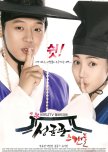
Unfortunately though, while the show is willing to raise provocative issues, it’s unwilling to really deal with the ramifications of those issues. A world where being an educated woman or a gay man is a capital crime is hardly likely to provide a happy ending for nonconformists. Instead of confronting this head-on, the drama drifts into fantasy in its final episodes, substituting feel-good platitudes and miraculous solutions for the difficult problems it has so compellingly presented. This allows it to maintain its romantic comedy credentials, but at the cost of what could have been a much darker, but also much more honest show.
Was this review helpful to you?

However, while this is obviously a show about art, it is equally a show about sex. It uses its cross-dressing premise as a starting point to pose provocative questions about gender and sexuality, and unlike many other shows, it consistently refuses to default to safe, easy choices. It suggests that there is more than one way to read a painting or a relationship, and that societally sanctioned views that champion heterosexual male privilege will miss a great deal of meaning. Like Shin Yun Bok’s paintings, this is a daring, sexy show that is quite happy to reveal more about its world than its inhabitants may want to see.
Was this review helpful to you?

Was this review helpful to you?
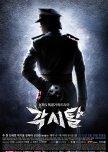
Always. It’s like being trapped in a room with a blind boxer. Windows get broken, messes get made, lots of punches go awry. Between the shouting and the pistol-waving and the torture and the explosions you may want to slip the show a few Valiums and tell it to chill. But then a punch lands, and damn . . .
Is the show often over-the-top? Repetitive? Uneven? Infuriating? Yes. All of the above. But its no-holds-barred approach is also its greatest strength. The show takes big risks, and while not all of them pay off, its willingness to push the boundaries of content and plot conventions makes it gripping and unpredictable. It’s rarely subtle, but when it works it’s powerful. Much of this power comes from the raw energy of its male leads, and their explosive chemistry as they love and hate and destroy each other and those around them. The female lead is weak but it doesn’t really matter. This show is all about the boys.
Is there a lot of sturm und drang? Yes. Is all of it necessary? Maybe not, but the best moments will haunt you long after the screaming stops.
Was this review helpful to you?
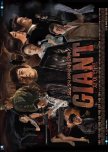
The writing is a bit sketchy in the initial episodes, with extra servings of trauma and some odd lapses in logic. However, the child actors are terrific (why hello, future stars!), and they morph into equally terrific adult actors. The male characters are particularly nuanced, as we watch two generations struggle to drag themselves and their country out of dire poverty. It isn’t always pretty, and I appreciated the show’s willingness to give all of its characters dark edges, especially since it’s equally willing to give them all moments of insight and grace. The female characters initially tend towards angelic but dim or shrewish and evil, but they also become more complex as the show progresses.
Keeping a 60 episode show engaging is no easy task, and Giant does it with sophistication, style and humanity. It has plenty of “big” moments, but it never forgets that even the most ordinary activities can be dramatic. It finds poetry in mud flats and rock piles, and in the rough-edged men fighting to build a nation from them at any cost.
Was this review helpful to you?
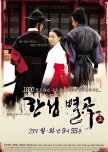
This review may contain spoilers
What happens when four characters are all seeking the same positive goal and yet are coming at it from such different angles that they’re likely to end up destroying each other in their attempts to achieve it? This is the fascinating, risky premise of Conspiracy in the Court. In a mere eight episodes, it manages to deftly sketch out a complex political situation where would-be allies find themselves constantly opposing each other as the real forces of darkness use the disorder to consolidate their power. For the first seven episodes it makes for a sophisticated, compelling show. And then episode eight comes along. Without throwing in specific spoilers, I found it hard to take much away from a show that essentially ended with the message that if you try to fight the power, the power will win. It may be “realistic”, and given the historical context, it wasn’t entirely unexpected, but it felt like a cop-out for a show that had presented so many smart, idealistic characters trying so many different approaches to address the evils of the world. Was this review helpful to you?

From a production standpoint, the show is often uneven. This is very much a writers’ show, and at its best, it’s tightly plotted, with thematic depth, complex characters, and powerful payoffs. It’s not perfect - the initial episodes are exposition heavy and awkward, the action lags in places, and the set-up presents a giant structural challenge that the writers are never able to fully overcome. The directing is functional, but not particularly distinguished. It’s also a show that is far more fortunate in the casting of its antagonists than of its protagonists. On the plus side, Go Hyun Jung and Kim Nam Gil are fabulous, and their performances alone are worth the 62 hour investment in the show. On the down side, this skews the dramatic structure and emotional impact of the story in ways that become particularly problematic towards the end.
Issues aside though, this remains a powerful show, one that for all the political games, epic battles, and over-dramatic close-ups keeps returning to three abandoned children and the cost of breaking human bonds. And how often do dramas of any type provide both a strong, smart female protagonist and a strong,smart female antagonist (and surround them with gorgeous guys)?
Was this review helpful to you?

